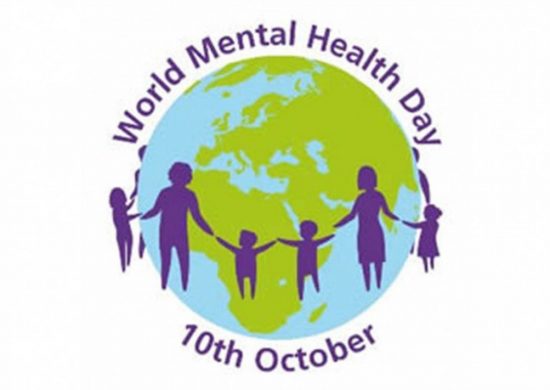Social Connection Helps Physical and Mental Health

To celebrate World Mental Health Day, DSCC promotes the importance of social connection and ways to support it.
The University of Illinois at Chicago’s Division of Specialized Care for Children (DSCC) is committed to strengthening families and building healthy communities.
We encourage our participant families, providers, community partners and all Illinois residents to join us in recognizing World Mental Health Day on Oct. 10.
To celebrate, DSCC Quality Improvement Specialist Diane Becker shares the latest research on how social connection affects both our physical and mental health:
We know that for all of us to grow, develop and thrive in Illinois, it requires us to work together as a community to remain safe and support each other.
This support includes creating opportunities for positive social connections and providing information and access to mental health support.
Positive social connections allow us to feel valued. They also provide opportunities to work together to solve problems.
Growing research shows more physical and mental health benefits to creating and maintaining these relationships. Positive connections create chemical changes that affect the immune system, nervous system, glucose levels and blood pressure.
The American Psychological Association’s article, Life-saving Relationships, provides more evidence of emotional connections and health.
The World Health Organization (WHO) is leading the conversation about mental health in positive terms and showing its connection to overall health and wellbeing. Social and environmental factors known to affect physical and mental health include:
* Food and housing security
* Safety in the home, school, work and community
* Access to care
* Connection to others
Mental health services are available throughout Illinois to offer connection and supports, even during this time of social distancing.
DSCC staff can also help you find available services and resources in your area to meet your unique needs.
Services are a safe and consistent place to move forward in adjustment or recovery to any setback, trauma, grief or loss that you may be experiencing.
Supports can also benefit anyone seeking a healthier way to work through difficult or complex emotions, to challenge negative thinking patterns or to learn new techniques.
The National Institute of Mental Health offers good information on a variety of mental health resources and assistance that are availbale if you think you may need more support.
Access to care remains DSCC’s priority.
Our team members are available to connect you with other families for peer-to-peer support. We can also share additional health supports and services in the community.
To learn more, please reach out to your local DSCC Regional Office or call us at (800) 322-3722.
You can also visit our online Resource Directory for additional support.
Featured resources include:
- Mental Health Resources Handout
- National Alliance on Mental Illness (NAMI)
- Mental Health America of Illinois
- Illinois Mental Health Collaborative for Access and Choice
- National Suicide Prevention Lifeline
- Coping With Stress
- Call4Calm Text Line
- How Teenagers Can Protect Their Mental Health During COVID-19
- Mental Health First Aid USA COVID-19 Resources
- Resources for Supporting Children’s Emotional Well-Being During the COVID-19 Pandemic
- Self-Care Inventory Tool
- The National Federation of Families for Children’s Mental Health’s COVID-19 Resources for Parents, Families and Youth
- How to Help Children Build Resilience in Uncertain Times
- Emotional Well-Being Toolkit: Resources for Children, Families and Caregivers
- Expressing, Coping, Reframing: Addressing the Mental Health of ‘Quaranteens’ in the Time of COVID-19
- PTSD During a Pandemic for Parents with Medically Fragile Children
- Young Children at Home During the COVID-19 Outbreak: The Importance of Self-Care


